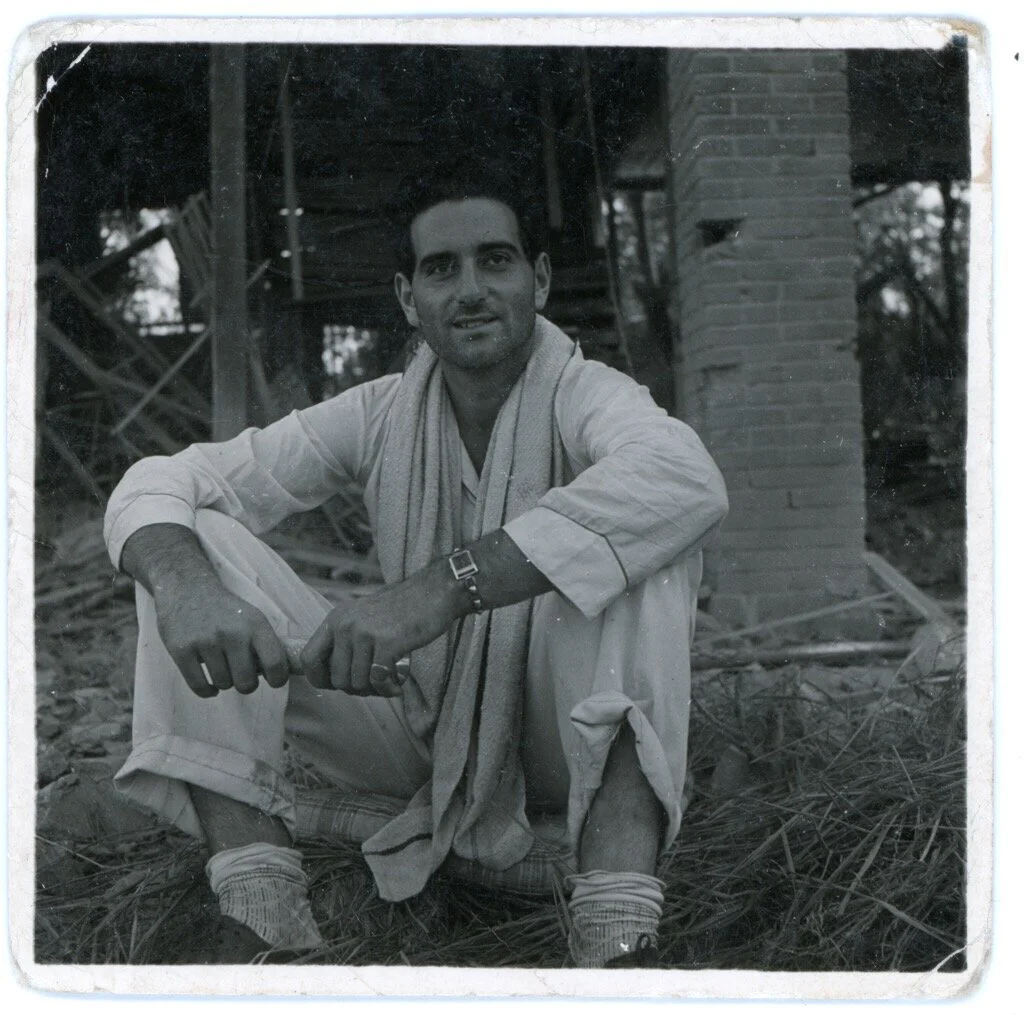
Motion Picture Treat: "When The Whole World Is So Upset"
For the first time ever, I'm able to share a movie of Melville Jacoby himself. These snippets of 16mm movies were shot in the 1930s and are accompanied by excerpts from a moving letter he wrote his mother in early 1941 about why he pursued his dangerous careert.Mel was on a boat from China bound for Manila and, eventually, to the United States. He had just finished a year's work as a stringer in China and the region of Southeast Asia then known as Indochina. There, in the city of Haiphong (a part of modern-day Vietnam), Mel had been arrested and briefly detained by the Japanese, who'd accused him of being a spy. As he traveled back to the United States, he wrote a moving letter to his Mother in which he attempted to reassure her about the risks he'd taken in the previous year. Check out the full post to see the video.

Following a War Correspondent's Footsteps to the Oil Spill
Will following the footsteps of Melville Jacoby, a World War II correspondent and my grandmother's cousin, help me cover the gulf oil spill?
As I learned from my grandmother about Melville, I realized he played a central role telling stories about one small part of another great, global crisis. Perhaps the war was more romantic than seemingly glacial environmental changes (though really, they aren't so glacial) but both crises are the defining milieus of a particular generation. "Like Melville," I wrote, "I want to chronicle my generation's response to its crisis."
Search Posts
Archived Posts
- March 2024 1
- October 2023 1
- October 2022 2
- December 2017 1
- April 2017 1
- February 2017 1
- January 2017 1
- November 2016 2
- August 2016 2
- July 2016 2
- December 2015 1
- November 2015 2
- September 2015 3
- April 2015 1
- March 2015 1
- February 2015 1
- January 2015 4
- August 2014 1
- May 2014 1
- April 2014 4
- March 2014 6
- December 2013 1
- November 2013 1
- August 2013 3
- May 2013 2
- April 2013 1
- December 2012 3
- November 2012 2
- October 2012 2
- September 2012 3
- August 2012 6
- July 2012 4
- June 2012 1
- May 2012 6
- April 2012 2
- March 2012 3
- January 2012 2
- September 2011 2
- August 2011 2
- July 2011 1
- May 2011 9
- April 2011 2
- March 2011 1
- January 2011 2
- November 2010 1
- October 2010 1
- August 2010 3
- July 2010 1
- June 2010 1
- May 2010 12
- April 2010 2
- March 2010 1
- January 2010 1
- December 2009 1
- November 2009 4
- October 2009 2
- September 2009 2
- August 2009 1
- July 2009 1
- June 2009 4
- May 2009 1
- March 2009 5
- February 2009 4